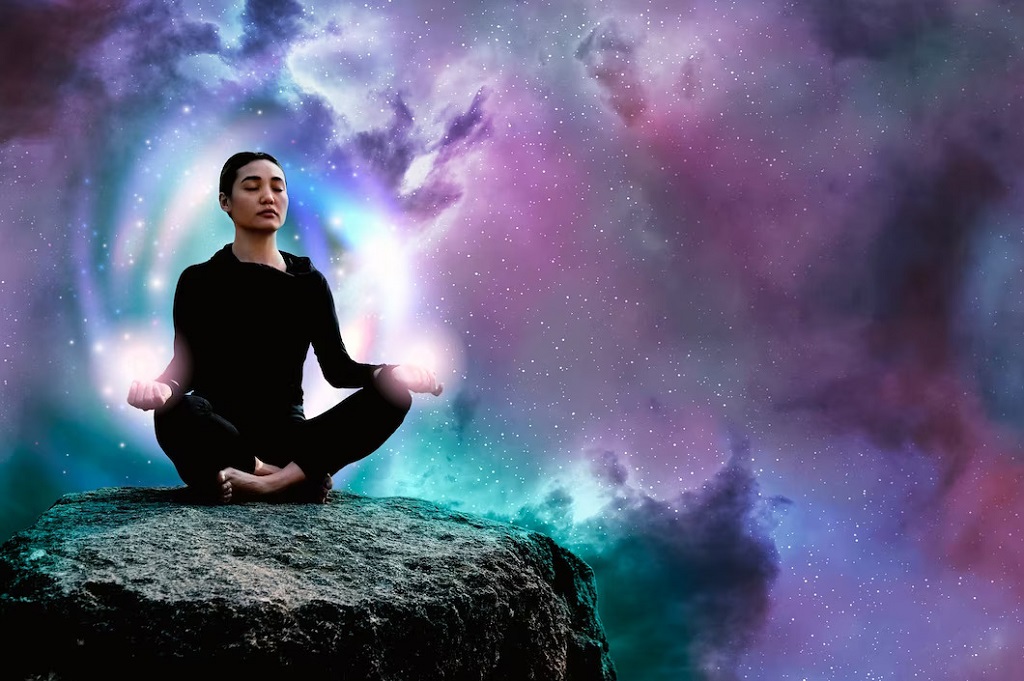Have you ever experienced that unique sensation in your head after meditation session? It’s like stepping into a serene oasis, where the mind seems to be floating on clouds of tranquility. This feeling has intrigued countless meditators, and today, we’re delving into the world of post-meditation headspace to unravel its mysteries. This article is presented by Charlestonteaparty.org.
The Euphoria of Inner Stillness
When you emerge from a meditation session, it’s not uncommon to feel a distinct sense of calm washing over you. Your thoughts have settled, and your mind is no longer racing from one idea to another. This inner stillness brings about a feeling of euphoria—a gentle, almost dream-like state where worries and stresses seem to dissipate.
The Brain’s Symphony
What’s actually happening in your brain during this post-meditation sensation? Imagine your brain as a symphony orchestra. Normally, different sections of the orchestra are playing their own tunes, creating a beautiful yet sometimes chaotic melody. Meditation acts as a conductor, bringing harmony to the orchestra. Neural activity becomes synchronized, creating a coherent and soothing rhythm. This harmonious brainwave pattern contributes to the feeling of clarity and lightness after meditation. Discover what happens after meditation.
The Release of Feel-Good Chemicals
One of the reasons behind the delightful sensation in your head after meditation is the release of endorphins and other feel-good chemicals. Meditation triggers the parasympathetic nervous system, which promotes relaxation and reduces stress. As a result, endorphins flood your brain, generating feelings of happiness and contentment. This chemical cocktail is the secret behind that post-meditation glow.
The Ripple Effect on the Body
Interestingly, the tranquil feeling in your head isn’t confined to that area alone. As your mind reaches a state of calm, it sends signals to your body to relax as well. Muscle tension melts away, heart rate slows down, and your entire being enters a state of profound relaxation. This interconnectedness between mind and body amplifies the sensation of peacefulness, creating a holistic sense of well-being.
Exploring the Boundless Mind
Meditation is often described as a journey within, an exploration of the boundless landscape of the mind. In this post-meditation state, the mind feels expansive, as if its limitations have dissolved. This feeling is akin to standing at the edge of an endless ocean, where thoughts and emotions ebb and flow like waves. The mind becomes a canvas upon which you can paint your innermost desires and aspirations.
The Dance of Neuroplasticity
Neuroplasticity refers to the brain’s ability to reorganize and adapt by forming new neural connections. Meditation, it seems, is a dance that enhances neuroplasticity. As you meditate, you’re engaging various regions of your brain responsible for attention, self-awareness, and emotional regulation. Over time, these brain areas become more connected, resulting in improved focus, emotional stability, and a heightened sense of self.
Navigating the Space Between Thoughts
During meditation, you become intimately acquainted with the spaces between your thoughts. These gaps are moments of pure presence, where the mind is devoid of its usual chatter. The sensation in your head after meditation is a residue of these moments. It’s as if you’ve glimpsed the essence of your own consciousness—the silence that underlies the noise. This connection to the space between thoughts is what brings about the feeling of clarity and expansiveness.
The Afterglow of Mindfulness
Mindfulness is at the heart of meditation, and its effects linger long after the session ends. The post-meditation headspace is an afterglow of mindfulness—a state where you’re attuned to the present moment. This heightened awareness allows you to appreciate the simple joys of life, whether it’s the warmth of sunlight on your skin or the soothing sound of rain. The feeling in your head is a reminder that this state of mindfulness is within reach, waiting to be embraced.
The Journey Continues: Integrating Insights
As you explore the depths of post-meditation headspace, you’ll likely encounter insights and realizations that enrich your understanding of yourself and the world around you. These insights are like pearls of wisdom, emerging from the ocean of your consciousness. They might arrive in the form of a sudden “aha” moment or a subtle shift in perspective. The feeling in your head is a testament to the transformative power of introspection.
Embracing the Everyday Mysticism
The feeling in your head after meditation is a gateway to everyday mysticism—a reminder that beneath the mundane routines of life lies a realm of wonder and enchantment. While the post-meditation headspace can be a powerful place to unlock the mysticism of the ordinary, it is important to be aware of the potential for negative side effects, such as anxiety, headaches, and fatigue. If you experience any of these side effects of meditation, it is important to stop meditating and consult with a doctor.
In conclusion, the sensation in your head after meditation is a harmonious symphony of neural activity, the release of feel-good chemicals, and the interplay between mind and body. It’s a glimpse into the boundless expanse of the mind, a dance of neuroplasticity, and an afterglow of mindfulness. This feeling is a treasure trove of insights and a portal to everyday mysticism. So, the next time you emerge from a meditation session with that serene sensation, remember that you’ve just embarked on a journey within—a journey that leads to the heart of your own consciousness.
FAQs
Is the post-meditation sensation the same for everyone?
No, the post-meditation sensation can vary from person to person. While many experience a sense of calm and clarity, the intensity and specific feelings can differ based on individual experiences and meditation practices.
How long does the post-meditation sensation typically last?
The duration of the post-meditation sensation can vary. Some people might feel it immediately after meditation, while others might experience it for hours or even the entire day. It largely depends on your mindfulness practice and the depth of your meditation session.
Can the post-meditation sensation be enhanced or prolonged?
Yes, certain mindfulness practices and techniques can enhance the post-meditation sensation. Cultivating gratitude, engaging in deep-breathing exercises, and spending time in nature can help prolong the feeling of tranquility and clarity.
Is the sensation in the head the only outcome of meditation?
No, the sensation in the head is just one aspect of the multifaceted benefits of meditation. Regular meditation practice has been linked to improved focus, reduced stress, enhanced emotional well-being, and even changes in brain structure over time.
How can I integrate the post-meditation sensation into my daily life?
To integrate the post-meditation sensation into your daily life, try to carry the mindfulness and presence you experience during meditation into your activities. Engage in tasks with full attention, savor the small moments, and practice gratitude to prolong the sense of tranquility.

